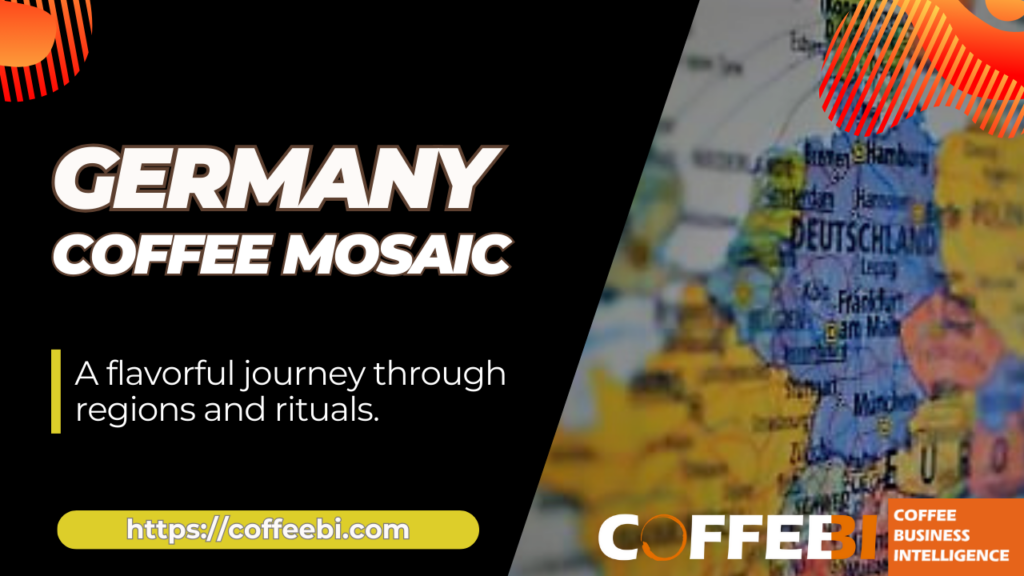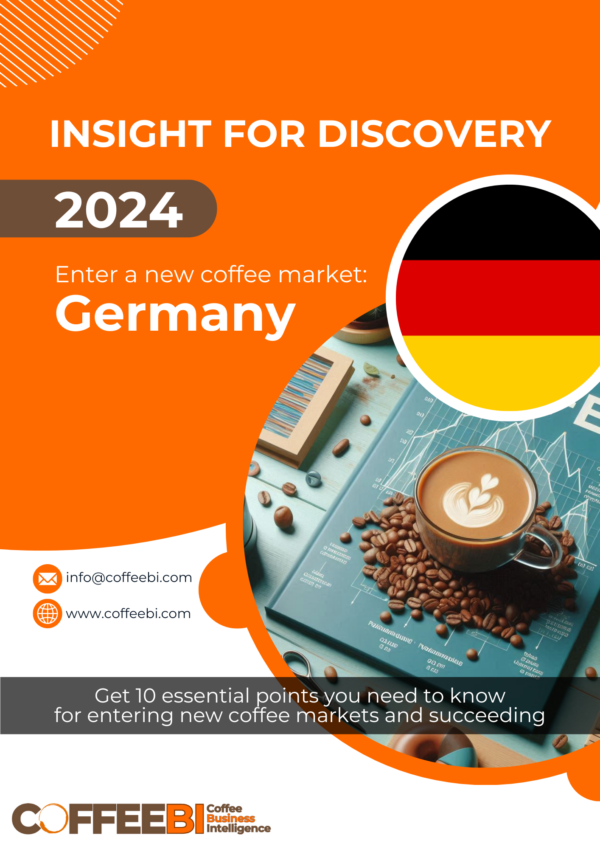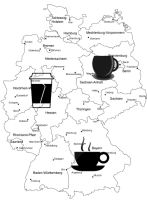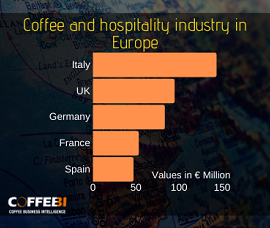Germany’s coffee mosaic: a quick journey through regions, rituals, and coffee brands
Germany’s coffee culture is incredibly diverse, offering a wide range of preferences, traditions, and rituals across its various regions. This diversity adds to the richness of the coffee experience throughout the Central European country.
Germany’s coffee culture is a tapestry of flavors, traditions, and customs, with each region offering its own distinct twist on the beloved beverage. Whether we can move in the northern regions like Hamburg and Bremen, or the southern regions like Bavaria and Baden-Württemberg, we are sure to embark on a delightful journey through Germany’s vibrant and diverse coffee culture.
Germany’s coffee culture from region to region

In the northern regions, such as Hamburg and Bremen, people tend to prefer filter coffee or traditional coffee with milk, which adds a creamy and comforting element to their coffee experience. On the other hand, the southern regions, including Bavaria and Baden-Württemberg, espresso-based drinks take center stage, and residents often savor their coffee leisurely in cozy cafes, creating a warm and inviting atmosphere.
The coffee culture in the former East Germany has been shaped by its unique historical background. During the GDR era, filter coffee was the norm. However, after reunification, a wider variety of coffee styles and flavors made their way into the region, offering a more diverse coffee experience. In the western regions, particularly in cities like Cologne and Düsseldorf, a vibrant café culture has emerged, and trendy and modern coffee shops have become popular meeting spots, where residents enjoy a cup of coffee while immersing themselves in the energetic atmosphere.
The specialty coffee movement has made a significant impact on larger cities like Berlin, Munich, and Hamburg. These cities have embraced the concept of specialty coffee, showcasing the finest single-origin beans and introducing meticulous brewing methods such as pour-over coffee. The result is an exceptional coffee experience that delights the senses. While smaller towns and rural areas often preserve traditional coffee customs, residents in these areas take pleasure in the simplicity of a straightforward cup of coffee enjoyed at home or in local cafes, where the sense of community and familiarity is cherished.
Germany’s coffee culture during events
During cultural events like Christmas markets, especially in southern regions, specialty drinks like “Feuerzangenbowle” (mulled wine with a sugarloaf soaked in rum set on fire) often take center stage, captivating visitors with their festive flavors and aromas. This temporary shift in focus highlights the versatility of German coffee culture and the adaptability of its traditions.
Additionally, coffee plays a central role in Kaffeeklatsch, a cherished social gathering where friends and family come together to enjoy coffee and engage in lively conversations. While Kaffeeklatsch is celebrated across the country, the frequency and style of these gatherings may vary from region to region, adding a personal touch to the coffee culture.
Regions with a strong historical influence, such as Bavaria, have their own unique coffee traditions. One notable example is the Bavarian tradition of “Kaffee und Kuchen” (coffee and cake) in the afternoon. This delightful tradition showcases a mix of local customs and historical influences, creating a distinct and memorable coffee experience.
German coffee brands
Some brands have a strong presence in Germany and are also available in international markets: Jacobs, Tchibo (and Eduscho), J.J. Darboven, Dallmayr, Idee Kaffee, Eilles, Moema Espresso, Gepa, Elbgold, Supremo Kaffee, Hamburg Kaffee Rösterei, Bauer Kaffee.
-
 Enter the German Coffee Market800,0€ inc VAT
Enter the German Coffee Market800,0€ inc VAT



